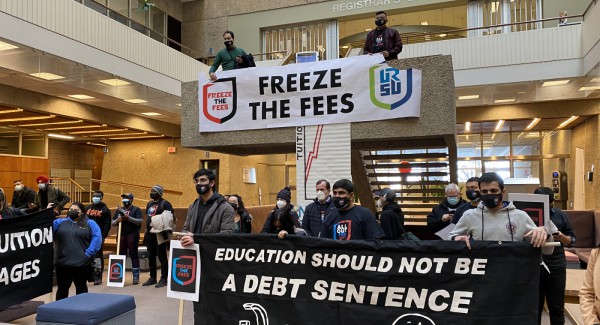University of Regina refuses to name funders of fossil fuel research
In fall 2017, geography professor Emily Eaton requested that the University of Regina send her a list of research that had been conducted at the University between 2006 and 2017 related to oil, gas, coal, petroleum, carbon capture, climate change, and alternative energy. She asked for data in four categories: “the dollar amount of the funding, the funding agency/company awarding the money, the title of the research project, and the unit (faculty or department or school) that received the funding.”
The University responded that it would only name the dollar amounts and the titles of research projects.
Sensing that the University had a requirement to be more transparent, and knowing that the data would only be useful to her research if all four categories were included, Eaton took the issue to Saskatchewan’s Information and Privacy Commissioner. Commissioner Ronald Kruzeniski penned a report, published in November 2018, recommending that the University release the information Eaton had requested, and that the University’s fee estimate of over $1,000 for the information request be rescinded.
The University responded that it would only name the dollar amounts and the titles of research projects.
The next month, the University responded that it would not follow the Information and Privacy Commissioner’s recommendations, and maintained its position that it would only release the funding amounts and project names. Signed by executive director of university governance Glenys Sylvestre (who is not a researcher), the response stated that some research is sensitive and further, that in some cases, “the funders require permanent confidentiality for the research.”
Dennis Fitzpatrick, who formerly served as vice-president of research at the University and is currently a professor of biochemistry, comments to the Sask Dispatch that “I’ve signed off on a lot of research grants in the past and I never came across one that was not just confidential, but secret.”
Even if the findings of a research project are confidential, says Fitzpatrick, it is standard practice that the “name, funding agency, and author are made public.” He adds that “the notion of taxpayers providing infrastructure to do secret research is problematic, and that’s an understatement.”
In her quest to carry out her research and demand transparency from the University, Eaton has retained a lawyer and is taking the matter to court. She launched a fundraiser online, called “When Universities Defy the Law: Eaton v. UofR,” to cover legal costs.



